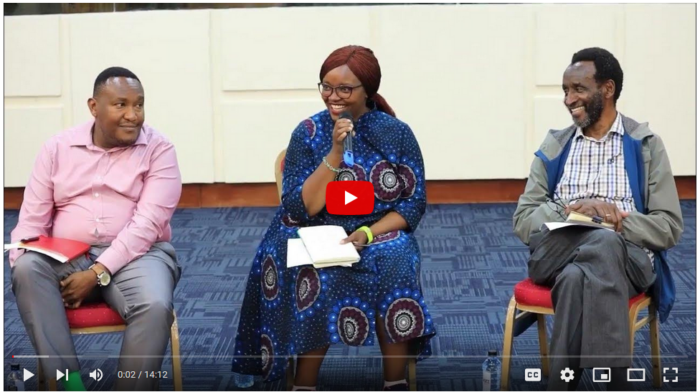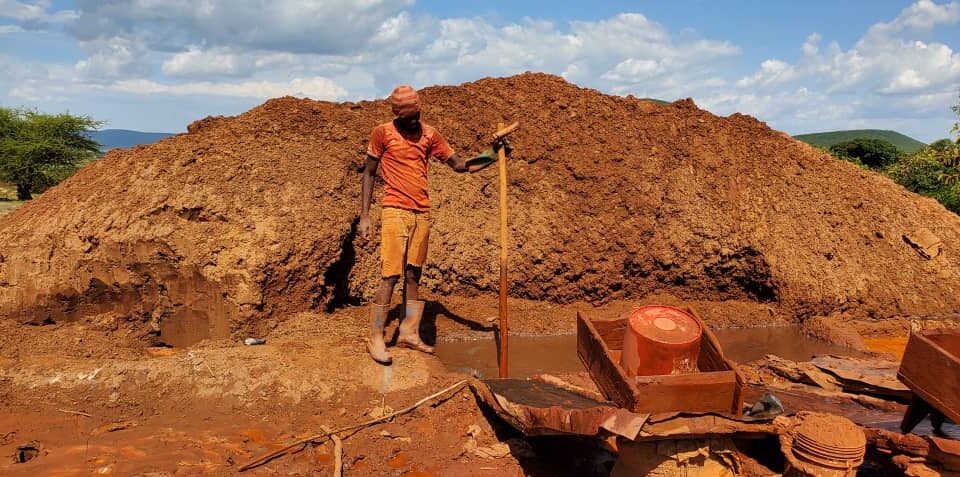What’s happened to citizen engagement in climate change discussions since Paris?

How can humanitarian aid be more effective? Ask the locals
July 28, 2016
My blog Kiliza turns one – and here’s what I have learned
November 1, 2016I know, I know. In my last post I said I’d be back in September and here we are, already in mid-October. Not that I haven’t tried to write something sooner. I actually wanted to refocus on climate change discussions and see whether citizens from the global South have anything to say about the historic agreement reached in Paris at the end of last year.
It hasn’t been so easy to find out. While there is relatively a lot of information available on citizen engagement in development programmes and policy-making, participation in climate change discussions seems to remain limited. Some efforts to include citizens from around the world were made in the lead up to the Paris conference (COP 21) and I already wrote about them here. But since then it’s been fairly quiet on the citizen engagement front or so it seems.
In fact, climate change itself has not made big headlines in recent weeks despite another couple of historic milestones being reached. On 5 October, the Paris agreement achieved the threshold required to enter into force, with enough Parties ratifying the Convention and accounting together for at least 55% of the global greenhouse gas emissions. The actual entry into force will happen on 4th November, meaning that for the first time since Paris we will start seeing some concerted action to fight climate change globally.
It is true that UNFCCC, the UN body that successfully led the climate change negotiations in Paris, has already embarked upon several initiatives to ensure citizens become more aware of climate change and engage in meaningful action, as agreed in Article 6 of the new agreement. One work stream even focuses on public participation, however the related websites are primarily designed for creating communities of experts and policymakers. With the notable exception of youth activities, education and training seem to be the only space where individual citizens can participate.
Other initiatives I have found about include the Citizen Climate Engagement Network, or CCEN, a new platform established at the Paris conference that seeks to build a global base of local knowledge, bringing local insights into the next climate negotiations (COP22) starting in Marrakech, Morocco in November. CCEN members can contribute by hosting a local working session focusing on specific issues, such as linking climate action with the recently approved UN Sustainable Development Goals or promoting citizen participation. CCEN even provides an online toolkit to better manage the discussion. This initiative looks more promising but there is no indication that it is reaching people in developing countries. It would be good to learn more about how local meetings are going, and where.
Same goes for the Citizens’ Climate Lobby, a US-based alliance with chapters in many Southern countries that aims to build enough political will to pass legislation on carbon fees and dividends around the world. I would be curious to find out about progress on this agenda. For now, it looks heavily driven by US climate politics.
Hopefully, COP22 in Marrakech will address the need to more closely engage citizens in climate change discussions, in particular in those countries that are suffering the most from the impact of global warming, such as Chile or Burkina Faso. We need to challenge the assumption that you cannot truly influence policy-making unless you are an expert. In reality, there are many ways non-experts can contribute to the discussion through their local knowledge, alternative approaches to problem-solving and by upholding their right to participation with their policy-makers and politicians.
Citizen participation in pre-Paris discussions shows that people are not just concerned about climate change, but willing and able to contribute to the solution. Let’s continue this conversation, starting in Marrakech next month.




